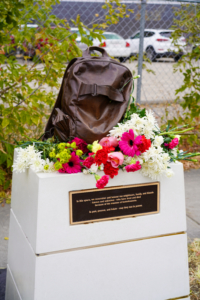I graduated with my Masters in Public Policy not long ago. Among the most basic tenets of making good policy – making any good kind of decision, really – is asking the people who that policy will affect for their thoughts and contributions. There are lots of ways our sector talks about this – meaningful involvement, public consultations, community forums, roundtable discussions, client or peer-led initiatives – all of which are undertaken to consult and include people who are affected by the policies, projects and decisions in question.
But given the constantly changing landscape of homelessness in Calgary, where data is revealing new things, new projects are starting, existing programs are changing, the meaning of contribution and consultation becomes more of a process than a project. It’s not a one-time question posed to a group – it’s an ongoing, continual, iterative thing that requires constant attention.
The Client Action Committee at the Calgary Homeless Foundation was started in July 2012, as a part of the work of the Policy and Research Team. The group’s stated aim is “to engage a diverse group of individuals with lived experience of homelessness in discussions related to research priorities and implementation of strategies for Calgary’s 10 Year Plan. Opportunities are provided to share stories and develop, carry out and take part in research projects.”
And that’s what we do – each week, we take over the foundation’s boardroom with our papers, our coffee, and our stories from the week. We check in with each other, get updates from each other about where people are living, how old friends are doing, what the rough moments of the week have been, where the victories are. And then we get to work.
Over 100 people have sat at this table – some only once, some for months at a time, and a handful since the very beginning. When people come to the table, they bring the sum of their experiences: here and elsewhere, housed and homeless.
Since the committee started, the work has included a wide range of projects and research activities – doing surveys in shelters, facilitating focus groups, coding transcripts, promoting and then hosting events, speaking to committees, boards, school classrooms and elsewhere, working on documentaries, and various writing exercises.
And each time we ask the committee for their help, they show up with a tenacity and enthusiasm that is humbling to me as a researcher. When we ask for their ideas, their priorities, what they would like to focus on, ideas come tumbling onto the table, informed by their own experience and that of their peers, all aimed at justice and inclusion for the street community.
The ideas, stories, experiences and battles of that committee get back to decision-makers in a handful of ways – through direct presentations and participation, reports and research – and often, through the people who have sat with client committee itself. We approach other tables bearing those stories, as yet another piece of evidence about what is working and what isn’t, where the gaps are, and what needs to be urgently pushed forward.Engaging

 With tears, flowers, and a song for a friend who can no longer be found, Calgarians gathered on a cold morning on October 13, 2021 for a reflective ceremony marking the installation of the city’s first and only permanent homeless memorial.
With tears, flowers, and a song for a friend who can no longer be found, Calgarians gathered on a cold morning on October 13, 2021 for a reflective ceremony marking the installation of the city’s first and only permanent homeless memorial.